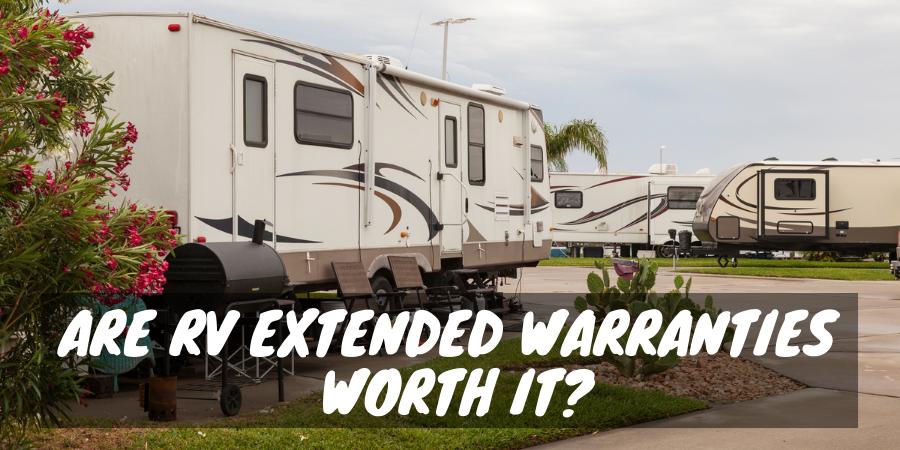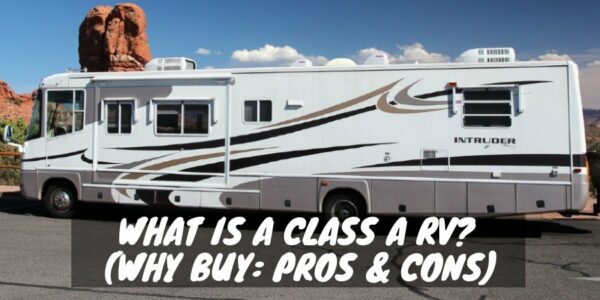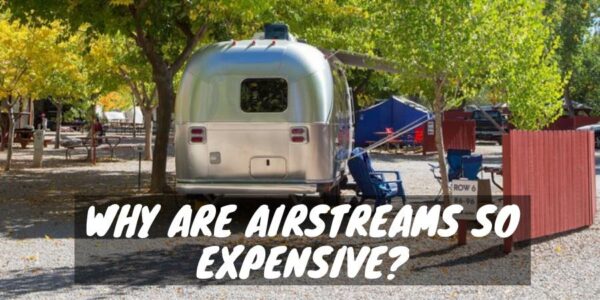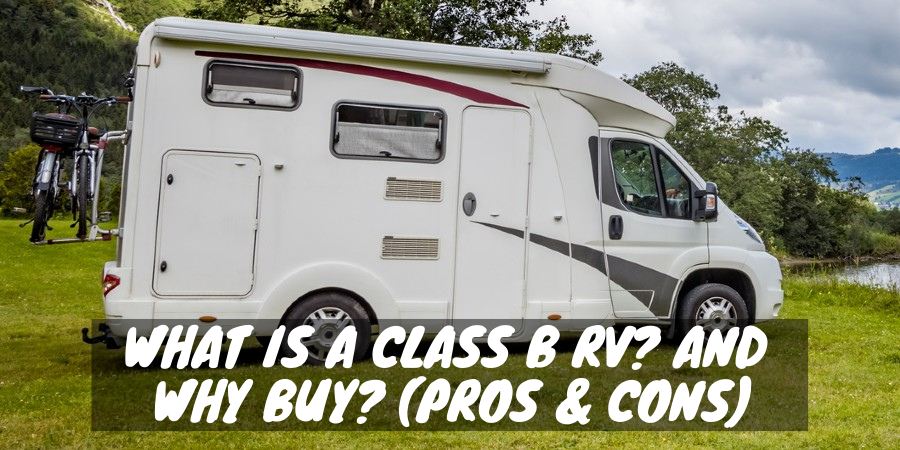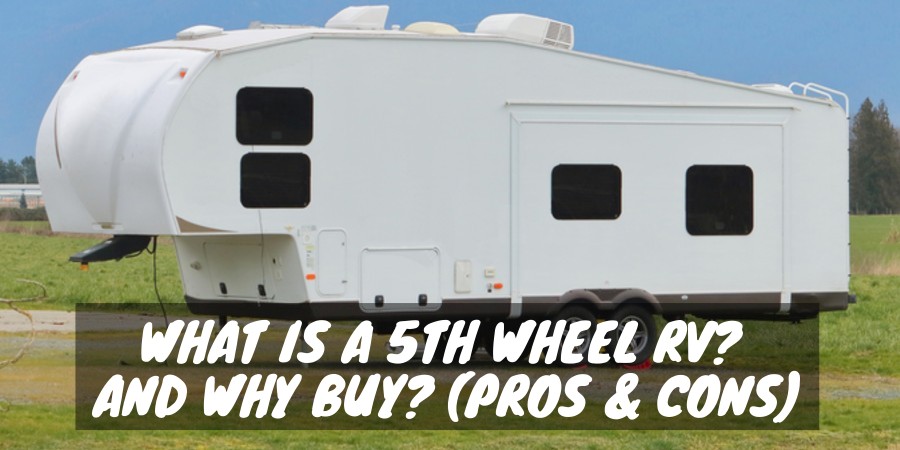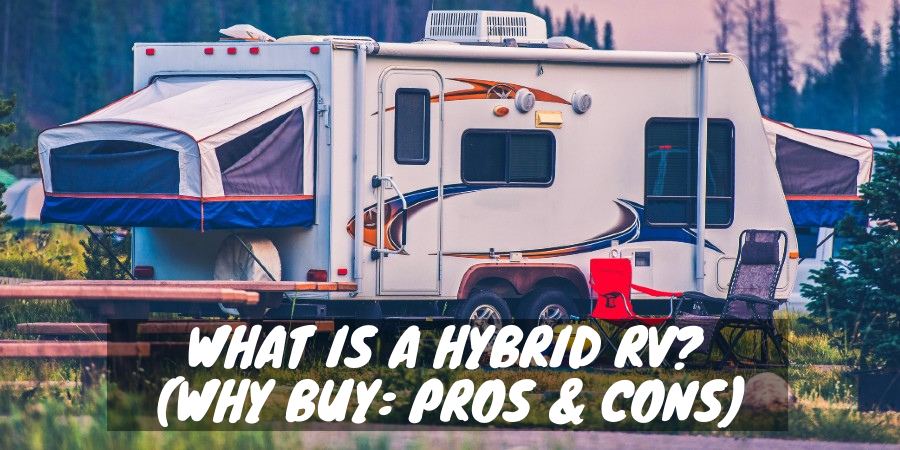Buying a recreational vehicle is a financial commitment, but is purchasing an RV extended warranty worth it?
The answer depends on many factors, including the age and type of your camper, how often you use it, and the cost of common repairs.
To help you decide whether or not you should buy an extended warranty for your RV, I go over all the details about what they provide, how much they cost, the pros and cons, and what companies deliver the best warranty product.
Don’t get stuck with expensive RV repairs or paying for a warranty that doesn’t help you when you need it most, so take your time and check out the information below to learn if an RV warranty is worth it to you.
RV Extended Warranty Coverage – What to Expect

Most new car or RV owners are aware of a standard warranty period to cover repairs on mechanical failures after purchase.
An extended warranty is a service contract that picks up when the standard warranty time frame expires. For RVs, most warranties cover problems for only the first year after purchase.
An extended warranty for recreational vehicles should be a policy that covers electrical and mechanical issues found in a travel trailer, fifth wheel, motorhome, or other types of camper.
The importance of extended RV warranties is two-fold.
First, RVs are made to last for decades and require repairs or replacement parts over their lifetime, especially motorhomes.
Second, RV repairs can be costly, leaving some owners without use of their camper for vacations when they can’t afford to fix it.
RVs have a lot of different components that can fail, such as the:
- Water heater and water pump
- Engine
- Braking system
- Wiring and lights
- Hydraulic systems for leveling jacks and slideouts
- Furnace
- Propane system
- Appliances
- Waste tanks and sensors
- Solar panels
- Battery banks
The key to knowing whether or not an RV extended warranty is worth it will be in the fine print of the contract.
How Often Do RVs Need Major Repairs?
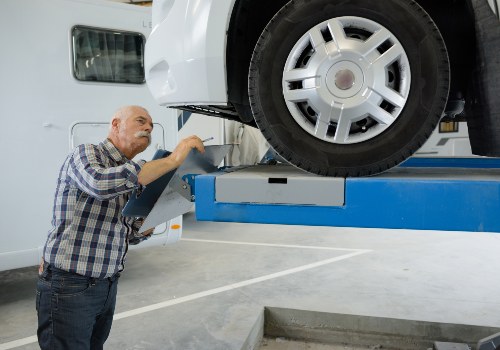
According to RV repair claims statistics, about 30% of new RVs will need some type of significant repair by the second year of ownership, while 80% will need it by year five.
What that repair may be for your new RV, and the cost to fix it, is unknown, which makes it hard to know if you need to pay for an extended warranty right away.
Keep in mind that RV builders are installing more components that rely on modern technology, and the cost is higher to replace or repair broken parts. Computer chips or motherboards are also making it more difficult for owners to perform DIY repairs.
If you feel an extended warranty is best for your RV, don’t assume your RV has a certain level of coverage, as the reality may be different. You may find you’re not only out the cost of your warranty, but you’re also stuck paying out of pocket for necessary repairs.
Before moving on, let me clarify what most RV extended warranties will not cover.
What an RV Extended Warranty Will Not Cover
Many people mistakenly look at a recreational vehicle warranty as an insurance policy. An extended service warranty for RVs is only to cover very specific issues and nothing more.
An Inclusionary Policy will list components the warranty will cover, and an Exclusionary Policy will have a specific list of elements it will not cover.
You certainly want coverage for the most-used items with a higher chance of breaking, like the slideouts, refrigerator, and generator.
Reading through a long-winded and possibly confusing RV warranty policy is crucial so you know what repairs it will cover so you can determine whether it’s worth the cost.
Taking the time at the dealership to slowly go over the coverage and ask questions can save many headaches down the line if you choose to purchase a policy.
What a manufacturer’s warranty will cover will vary from RV to RV, with motorhomes having engine coverage that may last 3-5 years. At the same time, other components generally lose coverage after a year but still vary per appliance or part.
The value of having an extended warranty for your RV is that you don’t have to keep track of when each electrical or mechanical component in your camper loses its manufacturer warranty coverage.
The most common repairs not covered in an RV extended warranty policy are:
- Any items your RV comprehensive or collision insurance policy covers
- Damage from natural events
- Paint or wood scratches, peeling, or cracks
- Oil changes and regular RV maintenance
- Carpet or flooring damage
- Broken or cracked windows
- Damage to the awning
- House batteries
Basically, extended RV warranties will not cover cosmetic or accident damage.
Related article: Caught on Video: 7 Horrific Motorhome Accidents
Cost of an RV Extended Warranty
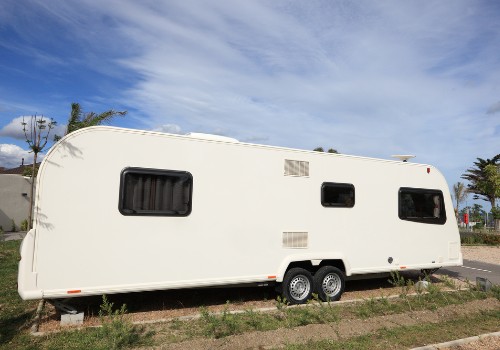
The average cost of an RV extended warranty that you add when you initially purchase a camper will run $5,000-$10,000 with a $500 deductible. Some service contracts will be lower, while others can be $20,000+.
The final price will depend on the age, mileage, value, and components you want to be covered in your RV. Class A and Super C motorhomes will cost the most to repair compared to a Class B campervan, standard Class C, or any type of travel trailer.
You also want to pay extra for a warranty that will cover hotel or accommodation expenses while your camper is in the shop, which is critical if you plan to full-time RV.
The service contract typically has a deductible, similar to vehicle insurance, that you’ll need to pay before the warranty contract covers the rest of the repair bill. The amount of the deductible will raise or lower the amount you pay for the extended service contract.
The real benefit of snagging the extended warranty at this time is that the cost will be lower than waiting till the standard warranty is close to running out.
The catch is that most dealers will offer to roll the warranty cost into your regular financing payment, which means you’re now paying interest on top of the actual cost of the coverage. By the end of the term, you’ve shelled out more than you should.
Some extended RV warranties offer a broader range of coverage than others. The more RV components the warranty covers, such as an exclusionary RV warranty, the more expensive it will be.
PRO TIP: You can get extended RV warranty coverage outside of a dealer, and often, the prices are much lower for the same type of policy.
Shop around online and get quotes from several companies so you can compare cost and coverage terms to what the dealership offers.
Be sure that any used RV extended warranty covers pre-existing conditions.
Other Sources for Extended RV Warranty Coverage
RV contracts for repairs after the manufacturer’s warranty expires are sold as:
- RV Warranty
- RV Extended Warranty
- RV Extended Service Plan
- RV Extended Service Contract
No matter what it’s called, here are some top companies that offer long-term repair coverage for recreational vehicles:
America’s RV Warranty has over 50 years of warranty service under its belt and offers transferable plans that cover an impressive range of mechanical components, freshwater systems, slideout mechanisms, appliances, and accessories.
Wholesale Warranties offers coverage for all types of recreational vehicles, even pop-ups and tent campers. You can also pick up coverage on an RV you purchase used through a private party for camping trailers up to 15 years old and motorhomes up to 20 years old.
Good Sam’s Extended Service Plan provides policies for motorhomes, trailers, 5th-wheels, toy haulers, and pop-ups. Good Sam makes the process straightforward by listing precisely what is and isn’t covered and other necessary qualifications so you can see at a glance if it’s right for you.
Before you sign up with any warranty service company, ask about limitations on which RV repair centers you can use. If you plan to travel far and wide, it won’t help you to break down in Alaska if you can only get your RV fixed in Colorado.
Want to Connect With a Community of Over 1,078 RV Enthusiasts?
Lastly, don’t sign on the dotted line until you research customer reviews with that company.
Do they answer your calls and set up repair work promptly? Do they settle repair bills quickly?
Please don’t trust the warranty company’s word that they are reliable. Find out the truth for yourself.
Are RV Extended Warranty Packages Worth It?

According to some financial experts and RV owners who have the coverage, the answer is no; extended warranty packages are not worth it.
Over the lifetime of the RV warranty versus the cost of the policy, it will be rare that you’ll recoup the payment total from the savings you gain from repairs after you cover the deductible.
It would be best if you kept in mind that companies that sell extended warranties for recreational vehicles are in it to make money, so it makes no sense to assume it’s going to save you money in the long run.
You must look at the cost of the RV warranty and compare it to the average claim for RV repairs. Here is a quick breakdown of common RV issues and the average cost to fix them:
| Electrical | $500 |
| Refrigerator | $400-$3500 |
| Converter/Inverter | $500-$2400 |
| Awning | $1150 |
| Slide Outs | $500-$1700 |
| Air Conditioner | $500-$3,500 |
| Leveling Jacks | $400-$2000 |
| Radiator | $2000 |
Don’t get me wrong, having a warranty to cover a large RV repair bill can be a lifesaver in many instances. But the odds of needing to make use of your contract are low enough to make it a profitable deal for warranty-selling companies.
The other option to handle RV repair costs is to build a cash emergency savings fund for that purpose.
Setting aside a set amount each month, as most full-time RVers do, is a great way to ensure you’ll have all, if not most, of the money necessary for quick repairs.
Note that I said quick repairs. Many RV service centers and dealerships are notoriously slow in getting warranty work quickly completed because the paperwork and waiting for reimbursement from the warranty company is a hassle.
If you’re relying on having your camper for an upcoming trip, or you’re in the middle of one when something goes wrong, you may not have time to wait weeks or even months for them to fix your RV.
On a personal note, I don’t have an extended warranty on my RV because I have extensive mechanical, electrical, plumbing, and construction skills and prefer to DIY most RV repairs.
If you don’t have such skills, then having RV repairs done under warranty may be the better choice and value.
Pros and Cons of RV Extended Warranties

Check out the benefits and disadvantages of purchasing an extended service contract for your recreational vehicle and see what option makes you feel most comfortable.
RV Extended Warranty Pros:
- Helps manage cost outlay for repairs
- Many warranties transfer, so it can increase value when selling your RV
- RV warranty companies monitor repair costs to prevent overcharging
- Reduces the stress of the “what ifs” while traveling
- Can pick a policy that covers towing, roadside assistance, and food/hotel while repairs are made
- Can save you a large amount of money if your RV has a lot of problems
RV Extended Warranty Cons:
- Warranty cost vs. repair charges may not balance if your RV doesn’t fail
- Older RVs will lose coverage after 15-20 years of age
- There’s no extended warranty coverage after you hit a certain mileage
- No cosmetic or standard, yet costly, maintenance repairs or services are covered
Final Thoughts
Your personal needs will determine if you feel it’s worth it to secure an RV extended warranty.
Having a warranty in place may give you peace of mind that will make all your RVing adventures less stressful. Keeping the cost of an RV warranty in the bank instead may make you feel more in control.
Only you will know if an RV extended warranty is worth it, but every RV owner should have a plan in place so you’re ready to deal with the inevitable breakdowns and repairs when they do occur!
Are Extended Warranties Worth It? (Video)
"Man cannot discover new oceans unless he has the courage to lose sight of the shore."
-- Andre Gide

